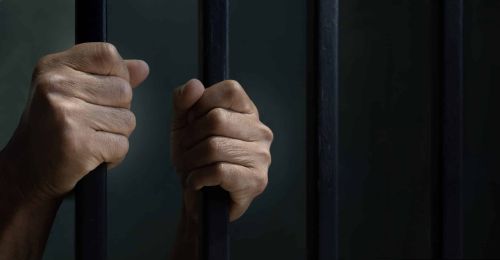Menu
What Is Prison Like?
February 11th, 2025

If you were arrested and charged with a crime, you may face the possibility of being sentenced to prison. Going to prison is a challenging and life-altering experience. While individual experiences vary depending on the person, facility, and the length of the sentence, there are common elements of a prison sentence.
Here, we address the general aspects of what it is like to go to prison, the social and emotional aspects of a prison term, and what you can do to prepare yourself to serve a prison sentence.
What Will Happen When I Am Sentenced to Prison?
In most cases, you will be taken into custody as soon as the judge sentences you. Other times, depending on the sentence and the nature of the crime, a defendant can remain free on bail but will be required to surrender at a later date. Once in custody, you will be taken to a local jail or holding facility to await transfer to prison.
Officials from the Department of Corrections will gather personal information, including your medical and mental health needs and your criminal history. You may be required to undergo medical and psychological evaluations.
Once you arrive at the prison, you will be fingerprinted and photographed and issued your prison uniform and basic supplies. Prison officials will explain the daily routine and expectations. You will be assigned to your housing unit and expected to learn the rules of the institution.
What Should I Expect in Prison?
A prison sentence necessarily entails the loss of freedom. You will be confined to a specific area, and your daily routine will be heavily controlled. You will likely need to share a cell and will have little privacy or personal space. You will also be expected to adhere to strict rules, and breaking them can lead to additional punishment or loss of privileges.
Going to prison can take an emotional toll on you and your family. Being separated from family and friends can be emotionally draining. You will need to adapt to inmate culture and unwritten social codes. Your relationships with family members may become strained due to limited contact and the stigma of being incarcerated.
Your daily routine will be highly structured around work, meals, exercise, and recreation, and you will have little autonomy and few choices about what to do and when to do it.
Can I Communicate with Loved Ones While in Prison?
Most prisons allow daily phone calls and offer regularly scheduled visitations. Some prisons offer digital messaging systems that enable inmates to communicate directly with their loved ones. These systems are closely monitored, and certain topics of words will be flagged or cause messages to be rejected.
How Do I Get Money While in Prison?
While in prison, you may need money to purchase items from the commissary, like food, toiletries, and phone credits, or to access paid services like email, music, or video calls.
Many prisons offer online transfers so family and friends can deposit money into your commissary account. Some facilities allow family members to make deposits over the phone or through the mail.
Most prisons offer work programs that allow inmates to earn money by working in the kitchen, performing prison maintenance, factory or workshop jobs, clerical work, or performing other services like laundry, gardening, or working in the library.
Do Prisons Celebrate Holidays?
Most prisons observe holidays, but how they are observed varies widely based on the facility. Holiday celebrations in prison are modest, but they can provide moments of connection, reflection, and a sense of normalcy. Most prisons celebrate secular holidays, like Thanksgiving, New Year’s, and Independence Day. Many also celebrate religious holidays like Christmas, Hanukkah, Ramadan, Easter, and other religious observances.
The prison may be decorated, religious leaders may perform services, and family members are typically encouraged to visit. Many facilities offer special meals on holidays, like turkey on Thanksgiving or a special holiday dessert.
Can You Earn a Degree While in Prison?
Education is widely recognized as a tool for rehabilitation, and most prisons offer educational programs. Many inmates pursue a high school diploma, GED, vocational training, or even a college degree.
How Will My Health Issues Be Addressed While I Am in Prison?
Prisons have a legal obligation to provide inmates with necessary medical care. Failure to address a serious medical need can be considered ‘cruel and unusual punishment.’ Most prisons provide medical care for acute, chronic, and mental health conditions.
If you have a prescription medication, the prison will continue to provide it once it has been verified. Some facilities sell over-the-counter medicines in the commissary.
In cases of a serious or complex medical condition like cancer or kidney failure, you may be transferred to a hospital or other medical facility or referred to a specialist.
What Types of Rehabilitation Treatment Is Available?
The availability of rehabilitative treatment varies depending on the facility. Many prisons offer programs to treat mental health issues and substance abuse. Some facilities offer specialized treatment for sex offenders, veterans, and youthful offenders.
What Happens When I Finish My Sentence?
When you complete your prison sentence, the facility will follow its procedure for release. In some cases, you will go directly to a home; in others, you may go to a halfway house or another supervised environment.
Many prisons offer pre-release programs to help prepare you for life after incarceration. You will be assigned a case manager or parole officer who will develop a release plan that outlines where you will live, how you will support yourself, and how you will comply with any post-release conditions. During your final processing, you will receive your personal belongings that were confiscated when you entered prison.
Many inmates face challenges finding employment, rebuilding relationships, and adjusting to life outside of prison. Government and non-profit organizations may provide resources to help.
How Just Criminal Law Can Help
Each person’s experience in prison is different, and the prison environment can vary significantly depending on the facility and the crime you were convicted of.
Just Criminal Law represents people accused of crimes in eastern Wyoming and western South Dakota. Our team can evaluate your circumstances and provide advice and legal guidance to help you move forward.
Contact Just Criminal Law Today
Contact Just Criminal Law today to schedule your personalized case review and strategy session.
DISCLAIMER: The information contained in this article is offered for educational purposes only. This information is not offered as legal advice. A person accused of a crime should always consult with an attorney before making decisions that have legal consequences.
Categories: Criminal Charges - General Questions





